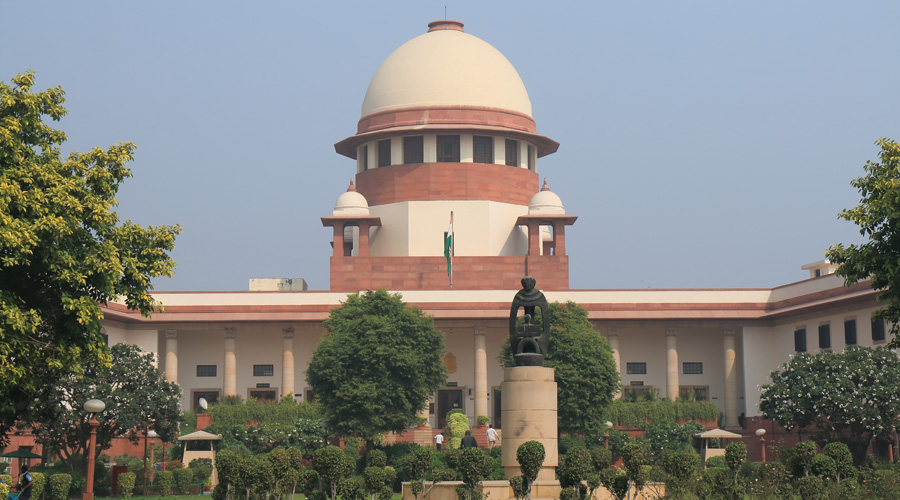Nearly seven months after putting on hold the law on sedition, the Supreme Court is scheduled to hear a batch of petitions challenging the colonial-era penal law on Wednesday when the Centre is likely to apprise it of the developments, if any, made while re-examining the provision.
In a path-breaking order, the top court had on May 11 last year decided to put in abeyance the penal law on sedition till an “appropriate” government forum re-examined it and directed the Centre and states to not register any fresh FIR invoking the offence.
A bench comprising Chief Justice DY Chandrachud and Justice P S Narasimha has listed for hearing as many as 12 petitions, including the one filed by the Editors Guild of India, against the law.
The law on sedition, which provides for maximum jail term of life under Section 124A of the Indian Penal Code for creating "disaffection towards the government", was brought into the penal code in 1890, 57 years before Independence and almost 30 years after the IPC came into being.
In the pre-Independence era, the provision was used against freedom fighters, including Bal Gangadhar Tilak and Mahatma Gandhi.
While putting the law on hold, the bench headed by the then CJI N V Ramana had ordered that besides lodging of fresh FIRs, ongoing probes, pending trials and all proceedings under the sedition law will also be in abeyance.
The bench had said the “rigours of Section 124A (sedition) of the IPC is not in tune with the current social milieu”, and permitted reconsideration of the provision.
“We expect that, till the re-examination of the provision is complete, it will be appropriate not to continue the usage of the aforesaid provision of law by the Governments,” it had said.
Any affected party is at liberty to approach the concerned courts, which are requested to examine the reliefs sought taking into consideration the present order, the apex court had said.
The bench had taken note of the Centre’s stand and said, “In view of the above, it is clear that the Union of India agrees with the prima facie opinion expressed by this Court… In light of the same, the Union of India may reconsider the aforesaid provision of law.” “All pending trials, appeals and proceedings with respect to the charge framed under Section 124A of IPC be kept in abeyance. Adjudication with respect to other Sections, if any, could proceed if the Courts are of the opinion that no prejudice would be caused to the accused,” it said.
If any fresh case is registered, the affected parties are at liberty to approach the courts for appropriate relief and the courts are requested to examine the reliefs sought, taking into account the present order passed as well as the clear stand taken by the Centre, it said.
The bench had not agreed with the Centre's suggestion that a superintendent of police rank officer be made responsible for monitoring the registration of FIRs for the alleged offence of sedition.
Between 2015 and 2020, 356 cases of sedition -- as defined under Section 124A of the IPC--were registered and 548 people arrested, according to data compiled by the National Crime Records Bureau (NCRB). However, just 12 people arrested in seven sedition cases were convicted in the six-year period.
The top court had in 1962 upheld the validity of the law while attempting to restrict its scope for misuse.
"Whoever, by words, either spoken or written, or by signs, or by visible representation, or otherwise, brings or attempts to bring into hatred or contempt, or excites or attempts to excite disaffection towards, the Government established by law in [India], shall be punished with imprisonment for life, to which fine may be added, or with imprisonment which may extend to three years, to which fine may be added, or with fine,” reads section 124A (sedition) of the IPC.
Among the earliest recorded sedition trials was in 1898 when freedom fighter Tilak was famously in the dock.
Except for the headline, this story has not been edited by The Telegraph Online staff and has been published from a syndicated feed.










